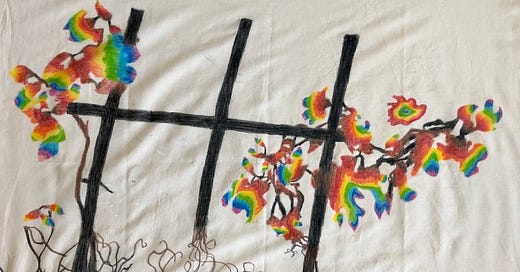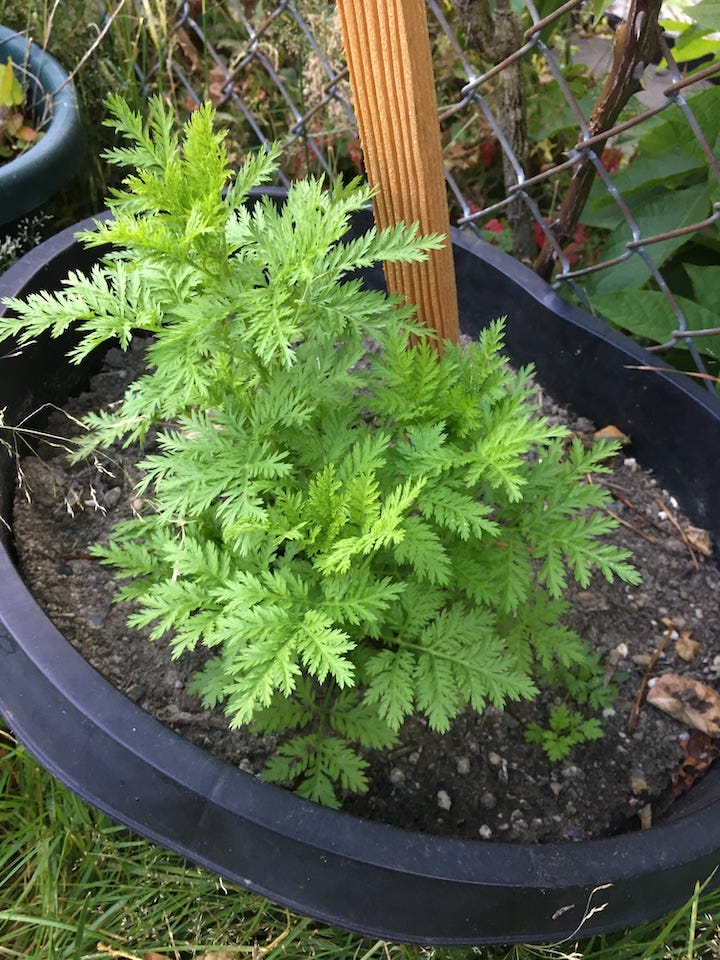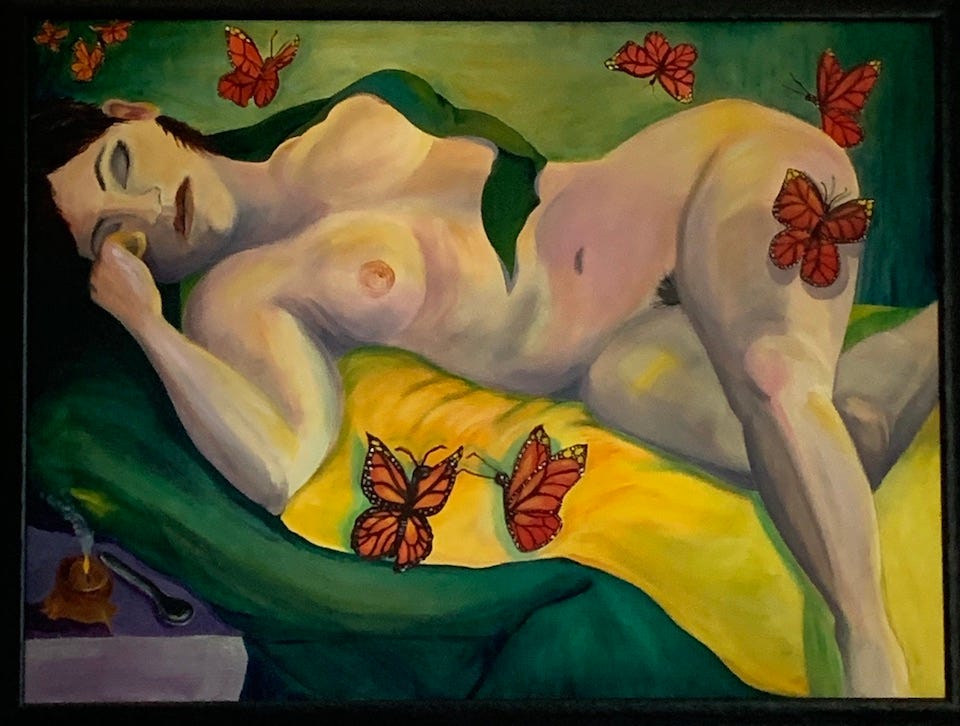Art
Shadowchrome
P. Skyrus
Idea
Anonymous
In April, 2020, Madagascar President Andry Rajoelina endorsed a drink called COVID-Organics whose main ingredient is an herb called Artermisia annua. President Rajoelina claimed that the tonic prevented and cured COVID-19.
The WHO disputed this claim, saying, “scientific evidence has not been established.” The health minister of eSwatini (formerly Swaziland), whose traditional healers have a reputation for extensive knowledge of African herbal remedies, also warned, “We have to do adequate proper research and be sure that the product works.”
Nevertheless, President Rajoelina continues to promote COVID-Organics as a cure, despite cases in Madagascar reaching 13,522 with 162 deaths as of August 13 according to Johns Hopkins University.
Professor G. Sodikoff, of Rutgers University, is a cultural anthropologist specializing in Madagascar. Sodikoff asked colleagues in Antananarivo, the nation’s capital, what they thought about COVID-Organics, but because Rajoelina arrested a journalist critical of his administration in April, they preferred not to share their opinions individually. Later, their affiliated university organization released a statement doubting the tonic’s efficacy.
But what about the rest of the country? Sodikoff had previously researched rural Malagasy attitudes toward disease during a 2015 bubonic plague there and explained, “People have a non-dualistic approach to treatment.”
During the plague outbreak, most families brought sickened members to the hospital to receive antibiotics and also requested interventions from their diviner.
For one family with four sick patients in the hospital, the diviner first interviewed family members, then he arranged and read coins. After careful consideration, he identified the culprit causing the illness appearing in all four patients. The instigator was none other than a niece’s jilted lover, who was angry and wanted vengeance. The diviner concocted a customized herbal potion that relatives administered to the hospital patients. Family members of the patients then consulted with another diviner in their own village to confirm whether a curse had indeed been inflicted on them. This diviner was able to provide material evidence of vengeful intent by unearthing charms, each corresponding to a plague victim, that he found hidden in the banks of a stream.
Three of the four hospitalized patients recovered.
In the West we are not immune to a desire for control over difficult life-threatening situations. Although Sodikoff observed that, “Magic is what we call luck in the West,” magical thinking as a broad mindset is on the rise, going far beyond what we have in the past attributed to “luck.”
Even those of us committed to discerning the difference between scientific fact and a story wrapped up in a bow, can find it hard to resist unsubstantiated but hopeful predictions.
Kirby Ferguson, creator of the documentary series, “This is Not a Conspiracy Theory,” provided an explainer of why non-evidence-based explanations have become so popular. He observed that symbols, coincidental patterns, and a personalized story can help ease terror, which is what the diviners provided to the worried family in Madagascar, besides the tonic.
COVID-Organic’s main ingredient, A. annua, contains many compounds. Its main compound, artemisinin, has been widely used in treatment for quinine-resistant malaria for years and has anti-viral properties. Because of this, the Max Planck Institute in Germany is analyzing A. annua’s efficacy for prevention and treatment of COVID-19.
Rick Sheridan, of EMSKE Phytochem, is part of a team investigating plant medicinals of many sources for possible effectiveness against the virus causing COVID-19. He ran tests against all the compounds in A. annua and determined that a flavonoid called quercimeritrin is probably the effective component against COVID-19, not artemisinin.
Quercimeritrin can be found in a variety of fruits and vegetables, in particular, red onions. Red onions are delightful in guacamole. Pickled, they add zest to any taco. You can use the skins to dye hard-boiled eggs a deep ruby red.
Or, you could plant some A. annua.
A. annua seeds are available for purchase at J. L. Hudson, Seedsman, a grudgingly-online concern that requires buyers to calculate tax and shipping. The current owners of J. L. Hudson, Seedsman, have been distributing seeds for forty-seven years. The company was founded in 1911, seven years before the Spanish Flu pandemic.
A. annua features tiny nodding yellow flowers. It is often used in potpourri or wreath arrangements. It smells good.
You should not plant A. annua directly in your garden, because it is invasive and will take over.
Sow on the surface.
Guacamole
3 avocados, pitted, skinned
1/3 cup red onion
1 clove minced garlic
1/3 cup chopped cilantro leaves
1/2 cup diced tomatoes
1 jalapeño, seeded and minced
1 tablespoon lime juice
salt and pepper to taste
Mash the avocado. Add the rest of the ingredients. Combine.
Art
Woman for Nic and Todd
jEs
Poem
Ordering maple syrup from Vermont
A. Hamilton
Bill Clark answers the phone same as always.
He is now the same age as the boulders
And the icicles we snapped off of their surfaces
To eat as a snack
And the maple trees tapped for sugar on his farm,
Trees the neighbors now tend perhaps because
They have hale youth on hand.
Youth that didn’t go to New York
Or San Francisco, or end up in Seattle like me
And the guy I work with, also from Vermont.
Bill Clark answers the phone in a grumble
In a rumble of seeming confusion
Because he is as old as lichen in Vermont
And as reliable.
He finds his way to who I am explosively
Because I have called him before
“…on that island. Washington.
Surprised it hasn’t fallen into the sea.
You’ve been through some things.
A hard winter and the virus.”
We talk about New York,
Embarrassed by our good fortune.
We have a little silence and then
I order maple syrup from his wife Sue
Who can still take down an address
Over the phone and expect a check.
Video of hands kneading dough, with ambient noise, by E. Hudak.
Behind a Door welcomes your submissions and feedback.







